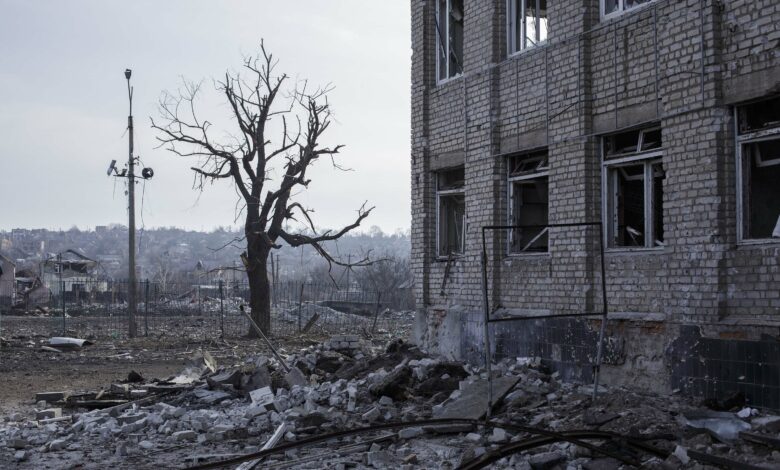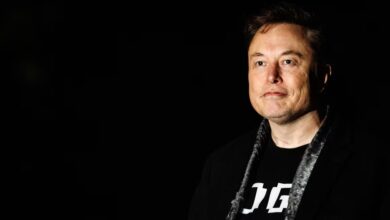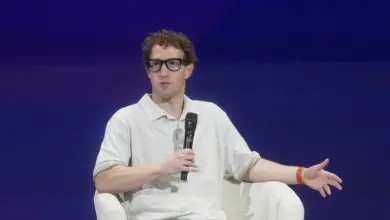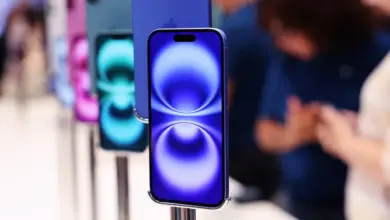
It was an afternoon to remember. I was invited by old friend Josef Trimble to visit him in Innsbruck – the capital of Austria’s western state of Tyrol. The city is in the Alps. It was cold and I am not a fan – not with my arthritis and steel in my thigh.
Nonetheless, Innsbruck is beautiful and its mixture of imperial and modern architecture blends beautifully.
Whilst I am no skier and no AI expert, I am fascinated by technology and its increasing role in our lives.
So, when I received Josef’s invitation for a unique afternoon with Mark Fedorov, the famous computer scientist, I accepted. Fedorov, born in Russia, American father, Russian mother, lived in China for a long time and is now teaching privately and undertaking research in the US (Nevada), and is a well-known AI pioneer in many fields.
I arrived from Cairo to Innsbruck, checked in the Penz Hotel and enjoyed a shower, watching the Tryolean mountains from my window and dressed as warmly as I could.
I proceeded to the lobby to meet the car and driver that would take me to Joseph’s office.
It was a pleasant surprise that a blond woman in an attractive navy pin stripe suit and long boots with a coat on her shoulders approached me, smiling and extended her hand to welcome me.
Introducing herself as Isabella, she said she was here to take me to Joseph.
We walked to the door and a car with a chauffeur, Kurt, was waiting and in a short 15-minute drive we were at Joseph’s office.
Joseph was warm and welcoming in casual clothes – a yellow pullover, a pair of black jeans and black boots. Peering from behind round eyeglasses, Joseph took me to a large room where chairs were set in a concave fashion.
There must have been 12 or 14 chairs facing two tables with computers and two chairs facing each other.
There was no one in the room except three technicians clearly finalizing setting up and testing the equipment. One of them was speaking via a wireless to another person or persons not in the room, in German. I could not make what was being said. Joseph said we were early and that the technicians were Mark’s staff putting the final touches on this pioneering experiment.
Shortly, a gentleman that looked like a copy of Tsar Nicholas II walked in. Sergey Andropov was out of central casting, a lookalike to Nikolai Alexandrovich Romanov, the last Emperor of Russia who ruled Russia from November 1894 to March 1917.
Sergey smiled as Joseph introduced him, noticing my surprise. The hair, the mustache, the beard, the ramrod bearing and firm handshake. After some pleasantries I got to know that Sergey was a Russian self-made entrepreneur, in his late 70’s, a computer science expert living in St Petersburg and traveling constantly to Austria. Sergey and Joseph were old friends.
A few minutes later, four people entered the room chatting together. Joseph made introductions. Antonio Lombardi, a former Italian politician, dressed to the hilt in a navy double breasted suit, a maroon tie and maroon pocket handkerchief, followed by Boris Markovic, a Serbian software genius who lived in the US and founded and sold four start-ups.
Boris was most probably in his early 40s, dressed in jeans, sneakers and a black turtleneck pullover with a totally bald head and disarming smile.
Next after Boris came Caitlin O’Callaghan, a tall Irish redhead with strong cheekbones and a sculpted nose.
“Caitlin”, Joseph said as he was introducing her, “was a complete nerd rather than runway model”, which I thought in my mind she could easily be. I later understood that Caitlin was instrumental in her work with Mark in programming.
Finally, out of the four, was Sir George Archibald, obviously British and no introductions except that he was in the defense business. Archibald had a stern no-nonsense attitude and rapidly slipped away to talk to the technicians and Sergey.
Ten minutes later as Joseph was explaining that all the people I met have been working together for over a year and that the program was both complex and confidential, a gentlemen walked in and walked straight to where Archibald was standing. He looked Mediterranean and Joseph took me to meet him. I was wrong – he was from Qatar, Jassim bin Abdul-Rahman al-Thani. He was introduced as a businessman.
He was young and it was understood later that Jassim, or rather Jerry, as he was called by the others was bankrolling this entire operation.
As we all stood about, the technicians were wrapping up and two people walked in. Joseph stepped up to greet them and introduce me.
Jeffery Nash, an American with a clear southern accent in a navy blazer, dark grey trousers, and no tie, with only a name introduction. He was followed by Oksana Babich, blond, short, sharp as she explained she is a Ukrainian politician, adding that before she was in politics she worked in Canada with a global tech consulting firm.
It was clear everyone knew each other and that I was the only outsider. Strange, I thought, but it reminded me when I invited Joseph years ago to a private meeting to mediate a major controversial matter involving two governments and two companies. I knew everyone and he came in cold. However, there was never a better mediator, negotiator, honest broker, or conciliator than Joseph.
The door opened again, and Isabella came in and with a high but pleasant voice asked everyone to take their seats. The technicians were walking out through a large double door in the back of the room.
The doors had interesting wood engraving that looked like a crest, but I could not determine the origin.
We all took our marked seats. On my left was Joseph and on my right was Caitlin. We were chatting and then suddenly Mark Fedorov walked in from behind the two double doors with two young men. Mark in his 80’s looked young, lean and very sharp with a high forehead and a head of white hair brushed backwards.
Joseph got up and motioned to all of us to remain seated. He shook Marks hand and they whispered quietly for a couple of minutes, then Josef turned and said to the group: “You all know Mark except Shafik”. I raised my hand and Mark waved back.
“Mark”, Josef said, “as you all know and have been working with him for almost a year, is working on a pioneering program. For Shafik’s sake, let me explain”.
Joseph addressed me: “Shafik, you know me as successful negotiator for over two decades, however I have experienced recently huge hurdles in the world of negotiation and mediation.”
He took a deep breath and continued, “In brief, given the complexity of social media, fake news, pace of change, misinformation and deepky imbedded ideologies sometimes based on illogical and irrational platforms, we have created this group and decided to try a different approach to mediation and negotiation.”
Josef stepped forward and said, “This group for close to a year has put the resources and time to build a digital negotiating platform to negotiate the nonnegotiable and since April 2022, we have focused on the Ukraine – Russia war, the facts, implications and possible solutions.”
He turned around and said, “Mark, the floor is yours…,” and Josef walked to his seat and sat down and crossed his leg and whispered to me, “I hope to open your eyes to a new world.”
Mark stepped forward and pointed to the two young men saying, “This is Hugo from Sweden and Patrick from South Africa”.
He gestured that they take their seats and they both sat at the two tables facing each other.
Mark wore a gadget I had gotten to try a few weeks earlier, a Runner Bone Conduction Wireless headphone. Hugo and Patrick also wore the same and you could hear Mark’s words from the speakers of the desktop computers on the two tables.
Mark looked me straight in the eyes and said, “The output that you will hear is the result”, and he waved with both arms to encompass the group, “of the work of all in the room.”
He added, “We have inspected all the data historically, empirically, and factually of the Russian-Ukraine conflict.” Moreover, he said, this output includes the analysis and opinions of over 3,377 individuals from across the globe.
These individuals are present politicians, past Presidents and prime ministers, current leaders of think tanks, business, psychology experts, defense, and military leaders both past and present, foreign policy leaders from across the world and representatives of global institutions, in addition to young activists.
“I can say,” Mark added, “that the inputting was complicated and wide ranging, however it was necessary. All major countries and parties were represented in the data input.”
He continued, explaining how complicated that was, reflecting some who urged the destruction of Putin and Russia to others calling for carpet-bombing Ukraine. In additions to others who experienced different views of negotiations, sanctions, escalation, de-escalation, ceasefire, etc.
Mark, walking across the room confidentially said, “With all this data inputted correctly, checked and double checked, we let the two computers negotiate. We, in recognition of Hugo’s and Patrick’s work, gave both computers the names Hugo and Patrick.”
“Today and for the first time, we will allow both Patrick and Hugo to express what they think is a workable solution to this war.” I blurted: “Think.” Mark smiled… :
“Shafik, you may call it what you may, but both computers representing a huge array of views have been in conversation for over seven weeks after, all inputting was completed. Now, on the occasion of a year of war in Ukraine, here is what they have to say.”
Mark pointed to Hugo and Patrick and both computers in one deep electronic voice said, “Good Afternoon.” Ladies and gentlemen, here is the result of our mediation and negotiation with all parties. Most of the time was spent with the American and Russian representatives…the next tier of focus was Ukraine and China…the rest was the third tier.”
The voice was astonishing to me…The two young men sitting at the table were looking at the screens watching the text as the speakers blurted the words in digital fashion.
The Patrick / Hugo computers continued, “Based on the premise that no party from tier one or two have achieved their goals and persistence will not achieve their goals, the following steps can achieve the best resolution:
- A ceasefire in place
- An exchange of prisoners
- Humanitarian aid to enter the areas of conflict.
- Russia to de-mine the Ukrainian part of the Black Sea and allow complete export of Ukrainian grain.
- US and EU to remove six selected sanctions by Russia.
- EU to freeze Ukrainian entry into the EU for 10 years.
- Russia agrees to withdraw the February 24, 2022 lines provided Ukraine commits by global treaty to not join NATO and be totally neutral with no Western armament, training or intelligence and no Russian political interference.
- Russia and the US, Ukraine, EU etc. accept the results of a transparent, globally observed, legally binding referendum in the Donbas and Crimea. This is to take place within 120 days from the ceasefire.
- The US and NATO freeze completely the expansion of NATO and Russia commits to its legal boundaries and the results of the referendum.
The computers went silent. I thought it was over. I heard a cough and a sigh. I did not know if it was from the computers or a person in the group, but I know I was surprised.
The computer voice came back and distinctly said, “If such a resolution is not accepted by all parties, we conclude there shall be more deaths, escalation, injuries, human devastation, political grandstanding, immense infrastructure damage and greater global repercussions.”
The voice stopped again. I looked around thinking it was over, then the voice resumed “Do remember now we are in March 2023 and on May 19-21 the G7 will meet in Hiroshima, where on August 9, 1945 an atomic bomb was dropped killing 146,000 human beings not to mention the after effects of aftermath radiation and disease.”
Silence followed. It was a somber message. Mark and Josef got up and we all followed… Everyone spoke at the same time discussing what we heard and expressing opinions.
My mind was wandering.
I thanked Josef for this unique experience as all were moving to a private meeting to which I was not invited to. Isabella was taking me to the hotel to later meet Josef for dinner.
As I was in the car heading to the hotel, I was thinking – will there be a dawn after this darkness, or is humanity stuck to repeat its mistakes regardless of consequences.
About the author
M. Shafik Gabr is a renowned leader in international business, innovation, investment and one of the world’s premier collectors of Orientalist art, and an accomplished philanthropist.
During his career, Gabr established over 25 companies plus three investment holding companies including ARTOC Group for Investment and Development which, established in 1971, is a multi-disciplined investment holding company with businesses in infrastructure, automotive, engineering, construction and real estate, over the past three years focusing on investment in technology and artificial intelligence.
Gabr is the Chairman and a founding member of Egypt’s International Economic Forum, a member of the International Business Council of the World Economic Forum, a Board Member of Stanhope Capital, an International Chairman of the Sadat Congressional Gold Medal Committee, and a Member of the Parliamentary Intelligence Security Forum. Gabr is a Member of the Metropolitan Museum’s International Council and serves on the Advisory Board of the Center for Financial Stability, the Advisory Board of The Middle East Institute, and the Global Advisory Council of the Mayo Clinic.
Through the Shafik Gabr Social Development Foundation, Gabr is helping to improve elementary-school education in Egypt, introducing students to arts and culture and promoting sports and physical fitness for youth. The Foundation has its first Medical and Social Development Center in Mokattam, Cairo, offering free medical and health services. In 2012 Gabr established in the US the Shafik Gabr Foundation which supports educational and medical initiatives plus launched in November 2012 the ‘East-West: The Art of Dialogue initiative promoting exchanges between the US and Egypt with the purpose of cultural dialogue and bridge-building.
Gabr holds a BA in Economics and Management from the American University in Cairo and an MA in Economics from the University of London.




